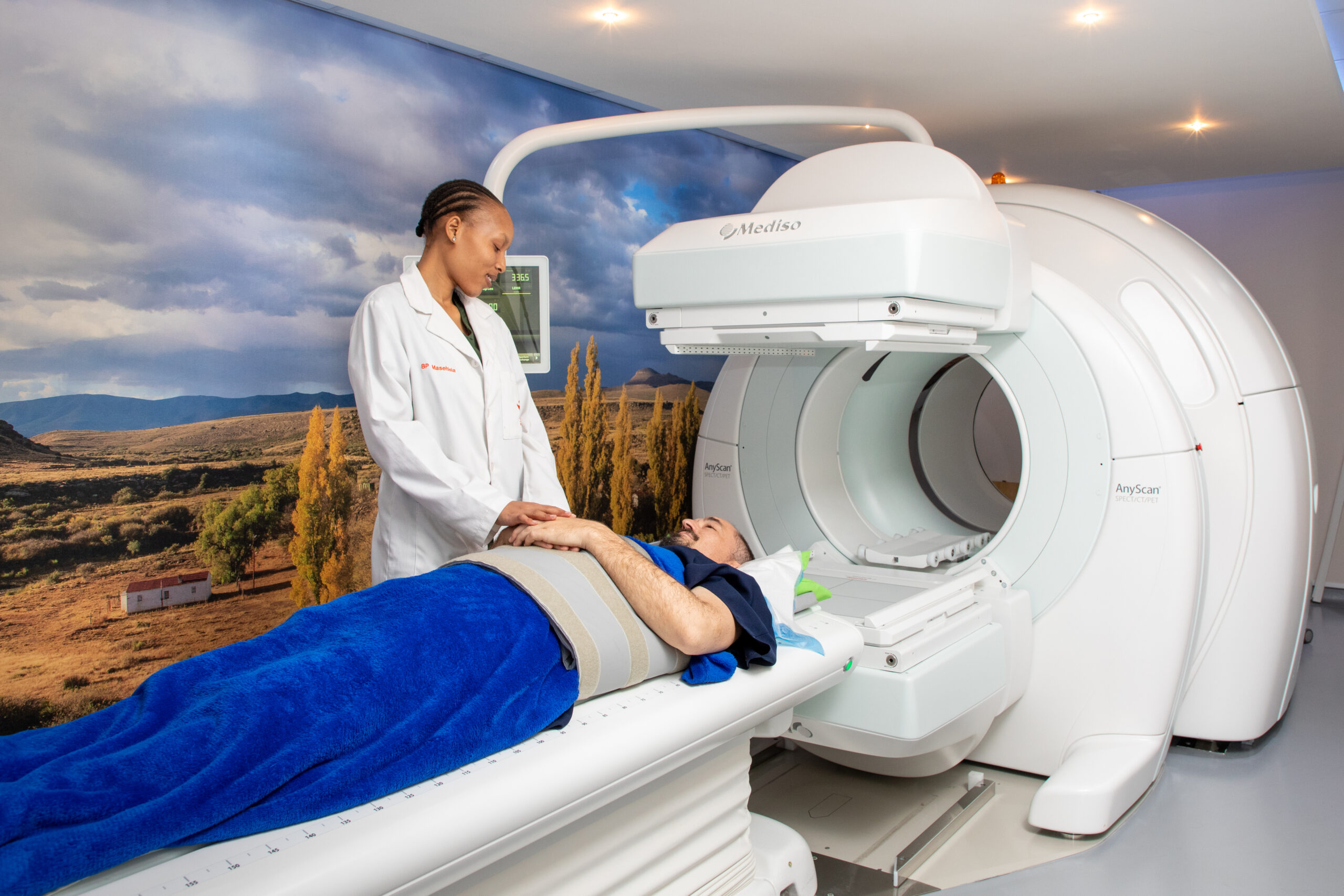Due to advances in medical scanning technology, you can now get screened for the earliest stages of heart disease, common cancers, and stroke risk. Disease can be detected even before symptoms are present, which is when management is most effective. We interviewed Dr Mitch Kaplan senior partner at Scan For Life about the tests he recommends how medical technology will improve our longevity.
The Top Tests For Longevity

Dr. Mitch Kaplan
“From a cardiac point of view, we now do two scans,” says specialist radiologist and medical director of Scan For Life, Dr Mitch Kaplan. “We do a calcium score scan or a full coronary CT angiogram scan.
The calcium score scan is the best predictor of a future coronary event available in medicine today, irrespective of pretext probability, irrespective of your lipids, your blood pressure, your blood sugar. It’s a three-second breath-hold scan that adds up the amount of calcium in your coronary arteries.
The X-ray dose is very low, and it’s done in one breath hold. There’s also no needle. It’s totally non-invasive; you walk in and you walk out. It’s probably quicker than having a chest X-ray. This is a super-simple scan that everyone should go for after the age of 40, and it has no downsides.”
He adds the following screening tests as being vital for longevity:
1. Blood pressure testing
Perhaps the most common and well-known, blood pressure should be tested regularly, because it’s possible to have dangerously high blood pressure and not know it.
You don’t have to make a special appointment with your doctor for this.
Many pharmacies and medical centres offer walk-in clinic facilities for blood-pressure testing. If your blood pressure is higher than normal, or you have other risk factors, you may need to be tested more often.
2. Eye test
The risk of developing eye diseases, such as macular degeneration, cataracts, and glaucoma, increases with age. Macular degeneration can lead to irreversible loss of vision, as can glaucoma (pressure in the eye). Since glaucoma has no symptoms, it’s essential to be tested yearly to protect your eyesight.
3. Hearing test
At least 25% of people over the age of 65 have disabling hearing loss, most of which is treatable. That number increases to 50% for the over-75s.
Book a hearing test if you have difficulty following a conversation, especially in a noisy environment, such as a restaurant.
4. Cholesterol screening
High cholesterol levels are a major cause of heart attacks and strokes. Again, there are no symptoms. Regular testing is the only way to monitor your cholesterol level. Ideally, your total cholesterol – HDL “good” cholesterol and LDL “bad” cholesterol – should be 4-5mmol/L (millimoles per litre of blood). Over 6.5mmol/L is considered very high, and above 7.8mmol/L is dangerous.
If your cholesterol level is high, you may be able to treat it by adjusting your diet. Alternatively, your doctor may prescribe medication to control it.
5. Colorectal cancer screening
In South Africa, colon cancer is the second most common cancer among men and the third most common among women. In its early stages, there are no symptoms, which means it’s often not diagnosed until it’s reached an advanced stage or spread to other parts of the body.
Most medical aids offer an annual free screening of a stool sample for traces of blood. Depending on the results, you may need to undergo a colonoscopy, where you’ll be sedated, and a fiber-optic camera will be used to scan your colon for cancerous polyps.
6. Bone-density scan
Although both women and men can develop osteoporosis in later life, women are at greater risk. A bone-density scan measures bone mass, which is a key indicator of bone strength. Regular bone scans are recommended after the age of 65, especially for women.
7. Vitamin D test
Many people are deficient in vitamin D, also known as the “sunshine” vitamin, as it’s produced when the skin is exposed to sunlight. It’s also present in foods such as egg yolks, dairy, and oily fish, such as salmon and sardines.
This vitamin helps to protect your bones. It may also defend against heart disease, diabetes, and some cancers. If you spend a lot of time indoors, you may be deficient in vitamin D.
8. Blood-sugar test
Globally, type 2 diabetes is one of the most prevalent non-communicable diseases, and it’s on the increase as a result of an unhealthy diet, obesity, and an increasingly sedentary lifestyle.
Around 4.5 million adults in South Africa have the disease. Left untreated, diabetes can be life-threatening. You should have a fasting blood-sugar test at least once every three years to screen for the disease.
You may need to be tested more frequently if you develop symptoms such as extreme thirst, blurry vision, numbness or tingling in your hands or feet, fatigue, or unexplained weight loss.
9. Mammogram
For women, a breast exam and mammogram are advised every two years from the age of 50, as the risk of breast cancer increases with age.
10. Prostate-cancer screening
Prostate cancer can be detected either by a digital rectal exam or by measuring prostate-specific antigen (PSA) levels in the blood. Testing is recommended from the age of 50 for men who’re not high-risk, or earlier for those who have a family history of prostate cancer, or have an immediate relative who has died from the disease.
For those over the age of 50, especially, an annual checkup is recommended, during which your doctor will routinely perform most of these tests.
You can also protect your health by eating plenty of fresh fruit and vegetables, avoiding fatty fast foods, stopping smoking, reducing alcohol intake to three units or less per week, and exercising regularly.
11. Pap smear
Pelvic exams, pap smears, and human papillomavirus (HPV) tests are recommended even for women over the age of 60. Older women can also get cervical or vaginal cancer. A pelvic exam can detect a host of other conditions that may affect your health and quality of life.
Advances in medical tests
Until recently, no blood test has been available for diagnosing Alzheimer’s disease, but some have been developed to measure various biomarkers, and now predictive blood tests may be a game-changer for Alzheimer’s disease.
About Dr Mitch Kaplan
Dr Mitch D. Kaplan is a Gold Medalist Specialist Radiologist and a senior partner in a large private Radiology Practice for the past fifteen years. He’s been internationally published and delivered presentations at local and international congresses – including the International Congress of Radiology (ISR).
He’s a member of the international Society of Cardiovascular Computed Tomography (SCCT). Dr Kaplan is also co-chairman of the MDCT Panel of the Radiological Society of South Africa (RSSA). He’s been the recipient of the international Carlo Romanini Award, and is the instructor for training Specialists in Coronary and Virtual Colonoscopy Scanning
This article was first published in the annual 2024/25 edition of Longevity. Living Beyond 100.
The edition is packed with content themed on Living Beyond 100, and one of the articles explores which tests can help you live longer. You can buy a copy of this information packed edition on Zinio. Included will be our latest issue. See details below.
GRAB OUR LATEST EDITION OF LONGEVITY 2025/6
 While the aforementioned article featured in the previous issue of Longevity, our latest issue includes even more incredible articles and features. Our “Back to Earth” issue is Longevity’s must-have edition for anyone ready to reflect on what we put in and on our bodies.
While the aforementioned article featured in the previous issue of Longevity, our latest issue includes even more incredible articles and features. Our “Back to Earth” issue is Longevity’s must-have edition for anyone ready to reflect on what we put in and on our bodies.
The issue includes and explores everything from food, clean beauty, sustainable living, fashion, travel, and other mindful choices.
While available nationally in print format in Southern Africa at your nearest Woolworths, Exclusive Books, and selectively at Superspar, Pick’n Pay, Airport lounges, and your local garage shop, you can also buy a digital copy at Zinio.com



![women [longevity live]](https://longevitylive.com/wp-content/uploads/2020/01/photo-of-women-walking-down-the-street-1116984-100x100.jpg)










